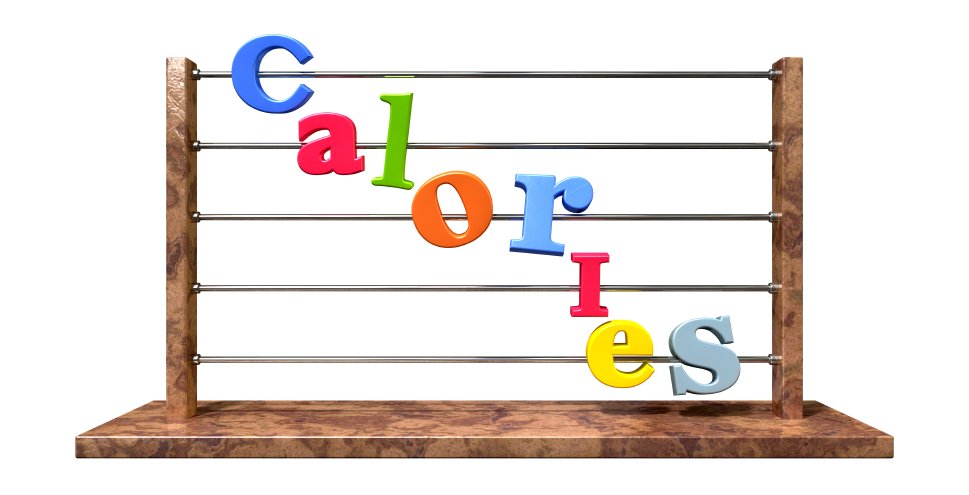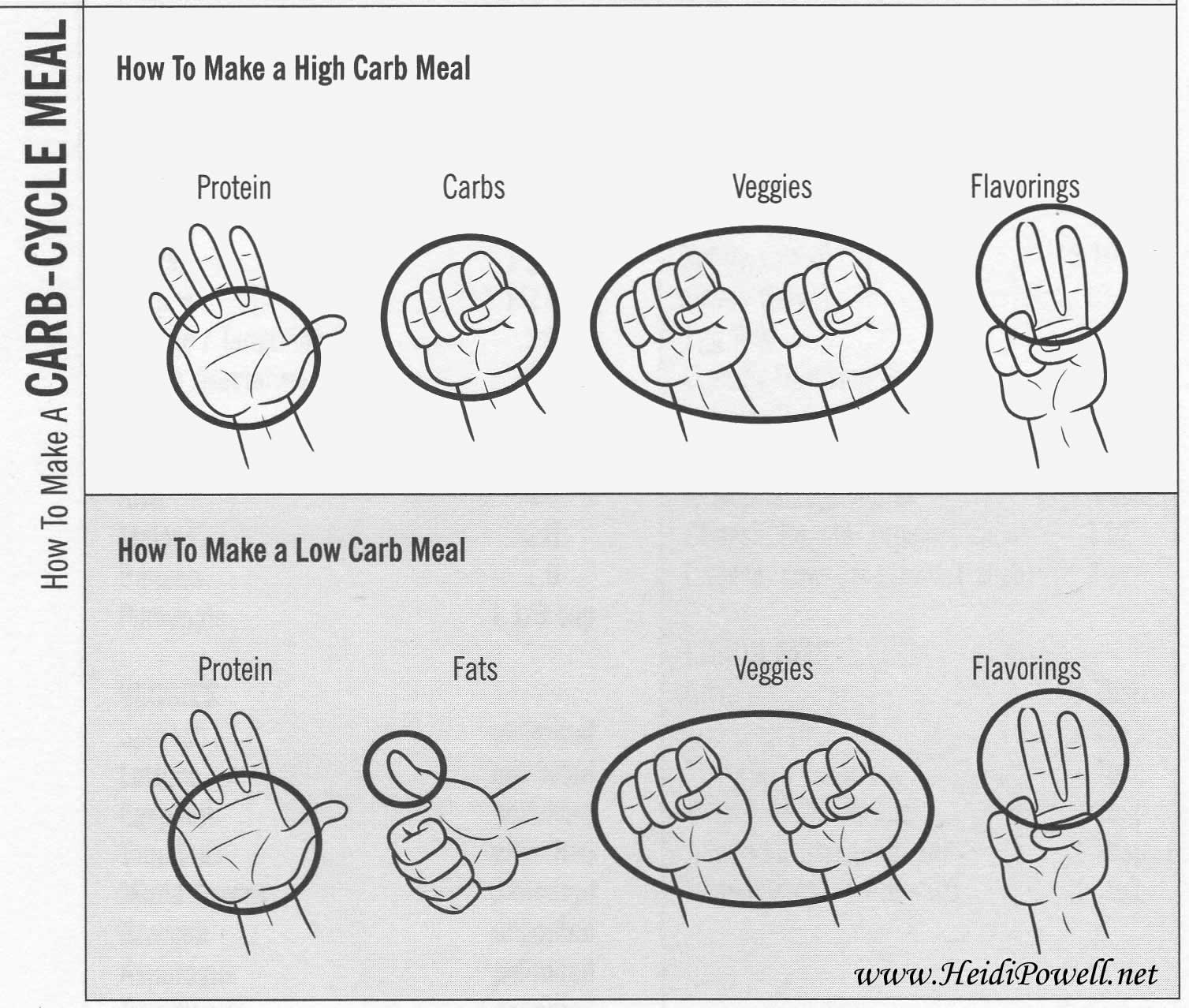You’ll find them in 99.99% of everything you eat and drink. They can be your greatest friends or your worst enemies. Eat fewer than you need and you lose weight. Eat more than you need and you gain weight. Yes, it is that simple.
Since calories affect everyone everyday, it?s important to understand them: what they are, what they do, and how to make them work for you instead of against you.
Some basic facts about calories:
- They represent the amount of energy in the foods you eat and drink.
- They are not partial to certain types of foods. A calorie from a carrot is the same as a calorie from a doughnut (although the carrot calorie is much healthier, of course!).
- Different types of foods are automatically higher in calories. Take 1 gram each of protein, carbohydrate, and fat. The grams of protein and carbohydrate each contain 4 calories, while the gram of fat has 9. Yes, that?s more than double the calories gram per gram. Yikes!
- One pound of fat = 3500 calories.
So how do you get calories on your side in your weight loss battle? First of all you need to know your Basal Metabolic Rate (BMR), which is the number of calories your body needs every day just to function properly?to breathe, circulate blood, adjust hormone levels, digest food, grow and repair cells, and so on. While there are several formulas to figure out your BMR, here?s an easy one:
Current body weight x 12 = BMR
150 pounds x 12 = 1,800 calories (BMR)
Simply put, if you eat more than your daily BMR, your body stores those extra calories as fat and you gain weight. If you stay below your BMR, you create a calorie deficit and you lose weight. One caution: women should never eat less than 1,200 calories a day, and men should never go below 1,500. Consuming too few calories sends your body into a protective starvation mode and slows down your metabolism, and a slow metabolism doesn?t burn calories as fast and can cause other problems as well.
There are three basic ways to create a calorie deficit:
- Eat fewer calories than your BMR.
- Exercise, because it burns calories and builds muscle, and bigger muscles burn even more calories!
- A combination of #1 and #2?the best option by far.
Here?s how this works:
- If you create a daily 500-calorie deficit, you?ll lose 1 pound a week.
- If you create a daily 1,000-calorie deficit, you?ll lose 2 pounds a week (remember that cutting too many calories from your diet is not good).
I know, I hear you: ?But Heidi, I don?t like to count calories.? You?re not alone. Counting calories is so not fun. However, it?s really important to know what you?re taking into your body every time you open your mouth. Studies show that most people think they?ve eaten 20% fewer calories than they actually have, so trying to estimate your calorie intake is a recipe for disaster.
Until you have an opportunity to weigh and measure your food to figure what your “correct” portions look like, this simple graphic shows a safe and easy way to choose appropriate portion sizes without measuring cups or a scale. This should also help keep you from creating a calorie surplus:
Some final words of advice:
- It?s important to recalculate your BMR as you lose weight.
- Some calorie tracking apps add the calories you burn from exercise into your daily to-eat total, making it look like you can eat more than you actually can, and if you do eat all those calories, you won?t have a calorie deficit at the end of the day. Instead, eat the number of calories in your daily eating plan, and subtract the calories you burned to see your deficit. Remember: one pound of fat = 3500 calories, so work to eventually create a 3500 calorie deficit.
- You can eat calories much faster than you can burn them, so don?t use those exercise-burned calories as permission to eat more food??I burned 500 calories this morning, so I can eat this cupcake.? So not a good way to do it!
To learn more about our preferred and proven eating and exercise plan?Carb Cycling?check out our book, Choose More, Lose More for Life.



205 Responses
I had gastric bypass, a little over a year ago. I’ve lost about 100 pounds. Does this still apply to me?
I’d suggest discussing this with your healthcare team since they are more familiar with your health history. Congratulations on losing 100 pounds!
Thank you Tracey for asking that question because I am curious about that too. I eat well under my BMR but am gaining weight!
Hi Chris and Heidi,
I watch your show Extreme Weight Loss every week! Every episode is very motivational and touching. I think you are both wonderful people, whom I really admire!
I do have a quick question about weight loss though. I have just begun my transformation a month ago and my starting weight was 270 at 40% body fat and today I weighed in at 259 at 37% body fat.
A month ago, I started walking/jogging/sprinting 2 to 3 hours a day 5 to 6 days a week in order to reach my end goal to lose 90 lbs.
I’m currently down about 11 lbs in the first month which equates to more than the recommended 2 lbs a week weight loss. But then again on the show your clients typically lose upwards to a pound a day for the first 3 months.
My question is, am I creating too great a deficit? I feel better (other than being sore most of the time lol). But what I’ve found is exercise really blunts my appetite and between that and the free day I just end up eating far less than my BMR most days of the week. With exercise and diet I think I end up with closer to a 2000 calorie deficit instead of a 1000 calorie deficit.
Thank you! You guys rock! =)
Chris and Heidi recommend that women not go below 1200 calories a day (in food consumed) and men not go below 1500 calories a day (in food consumed). In their carb cycling program, on low carb days women eat 1200 calories and men eat 1500 calories. On high carb days women eat 1500 calories and men eat 2000 calories. I hope that helps! And congratulations on the weight you’ve lost so far – that’s awesome!
I love carb cycling but I’m trying to understand it better. I have a couple of questions…
1. If weight loss is achieved through a calorie deficient, then why is carb cycling necessary & important?
2. I’m doing the turbo cycle & I’m wondering what is a reasonable expectation for weight loss over a given week?
TIA!
Great questions! #1. Carb cycling is necessary and important because it’s a proven way to lose weight. Yes, you can lose weight through creating a calorie deficit, but are the calories you are eating made up of healthy foods in the right portions to fuel your body correctly, or just fewer calories than your BMR? And since a big part of carb cycling is the low and high carb days, and the different calorie intakes for each, this process helps your body lose weight more efficiently and more quickly than if you simply count calories to create a calorie deficit. And carb cycling makes sure you’re fueling your body with healthy foods while you’re losing weight. #2. The amount of weight anyone can lose per week depends on the starting weight, exercise intensity level, body type, and other things, so there’s really not a one-size-fits-all number I can give you. Happy carb cycling!
What should you do if you are a women that has cut calories so severely that now your body is starvation mode? On and off now for 5 years, I’ve needed to shed some pounds. I have been on a program that keeps you in a constant state of Ketosis and you only get 800-1000 calories per day. Now when I try to eat a healthy amount of calories my body holds on to EVERYTHING! If I work out, I have damaged my adrenals and so if it’s stressful at all, my body holds on to everything as well. Is there any way to repair the damage I have done? How would I go about turning this around?
These are great questions, and I wish I could help you find the answers, but it would be best to discuss these with your healthcare team.
Thanks Heidi,
It all seems so simple, but putting all the elements together is a daunting task. But now that I know not to eat the extra calories from my app that says you earned those extra calories so go ahead and eat them… ugh!!!
This info just may do the trick!
So I calculated my BMR and it says I should be eating 3,500 calories. I am trying to lose weight and am wondering how much I should cut that amount. Is 1000 calories to much to cut for my daily intake?
Cutting 1,000 each day should be okay. In Chris and Heidi’s carb cycling program, the daily calorie intake for low carb days is 1200, and for high carb days it’s 1500. And you can add even more calories to your daily calorie deficit by exercising! Good luck!
I have a question, I won a language teaching set for my toddler twins 8 months ago and still have not received it…#badbizzpractice
I’m not familiar with this giveaway, so would you please send me the link to the post this giveaway was featured in? Thank you
Hi Heidi,
For us types who have to know the numbers, can you you tell me what I should be shooting for in terms of percentages between Protein, Carbs, and Fat as a percentage of total daily CALORIES both on High Carb days as well as Low Carb days?
In carb cycling we don’t count grams or keep track of percentages, we use portion sizes. There’s a great graphic (as well as other awesome info) in this post that explains this very well: https://heidipowell.net/4514/carb-confusion/. Happy carb cycling!
I guess that’s where I get confused and have trouble. I have tracked my calories while carb cycling for two weeks now. If I add the two fists worth of vegetables to every meal including the base meal, there seems to be no way to stay at 1500 calories on low carb and 2000 calories on high crab days. Additionally, the percentages seem heavy towards carbs every day with the low carb days only being slightly less. Help me look at this differently please….
I am also confused by all if this. I love your show and my husband and I watch every week. I started about 38 days ago with my lifestyle change. I workout 5 days a week. I alternate straight cardio doing about 30 minutes on the elliptical 2 days per week with weight training. I also do a small bit of cardio on weight training days because I heard you are supposed to do cardio every time you work out. I use the my fitness pal app, which I am guessing is the app you were talking about that adds calories back in that are burned off. I have lost a total of about 9 pounds. I always have 500-600 calories left over for the day according to the app. I don’t eat a lot, but I feel like I am at a plateau. I have hovered within 2-3 pounds the past two weeks and cannot get down below 270, no matter what I do! (Starting weight 282). Please help!
It does sound like you’ve hit a weight loss plateau. Here’s a post that might help you understand how to get through that plateau: https://heidipowell.net/5889/avoiding-and-conquering-that-weight-loss-plateau/. And congratulations on the 9 pounds you lost – that’s awesome!
Heidi, I am looking to maintain my weight, but replace some fat with lean muscle. I weigh about 115 pounds. If I workout and burn calories, is it safe to eat those extra calories and not gain or lose? I am perpetually confused by this!! I’ve been lifting and I enjoy running and when I burn extra calories that can make me net 800-900 a day. That leaves me STARVING. So I always eat them back to be satisfied. Is that how this works??? Thanks!
Yes – if you are trying to maintain your weight and build muscle, then you’ll want to eat back those calories burned (with healthy foods, of course!) 🙂